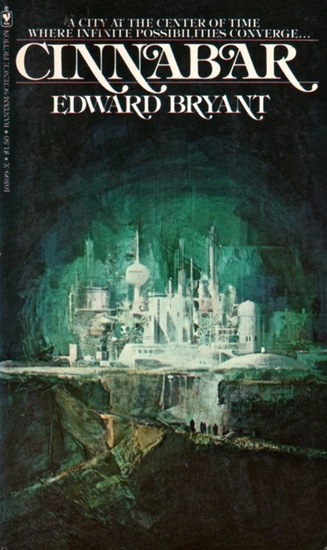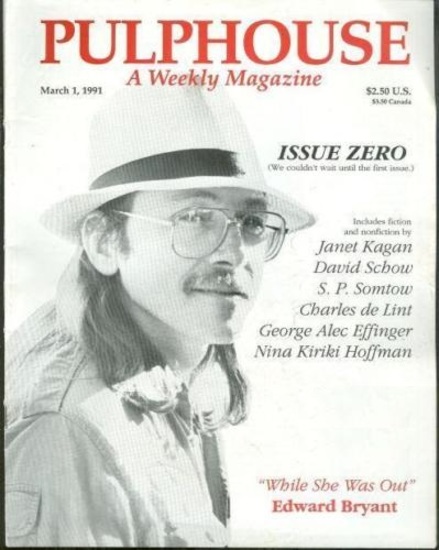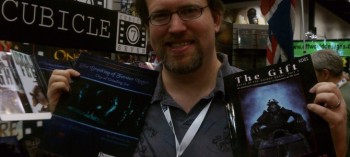Ed Bryant, August 27, 1945 – February 10, 2017
 |
 |
 |
SF author and critic Ed Bryant died yesterday after a lengthy illness.
Bryant wrote a single novel, Phoenix Without Ashes (1975), a collaboration with Harlan Ellison. As an author he was best known for his short fiction, including his Nebula Award-winning stories “Stone” (1978) and “giANTS” (1979). His collections include Among the Dead and Other Events Leading Up to the Apocalypse (1973), Cinnabar (1976, cover by Lou Feck), and Particle Theory (1981, cover by Richard Powers), which contained both “Stone” and “giANTS.” His most recent collection was Predators and Other Stories (2014), from ReAnimus Press. He was a contributor to the Wild Cards shared world series, and was featured on the cover of issue #0 of Pulphouse magazine (1991).
But Bryant’s most significant contribution to the field, and certainly the way I came to know him best, was through his reviews. He had long-running review columns in Locus (for nearly two decades, 1989-2007), The Twilight Zone magazine (1987-89), and Cemetery Dance (1990-98), and published reviews in Vertex, TaleBones, and many other places. Bryant’s columns were frequently the first features I read in many of my favorite magazines. He was an insightful and prolific critic with a keen appreciation for a good tale, as well as a frequent convention-goer. His numerous convention reports in Locus were always entertaining, and did a great deal to promote science fiction conventions across the country.
Ed Bryant died on February 10th in North Denver, from complications of Type 1 Diabetes. He was 71.








